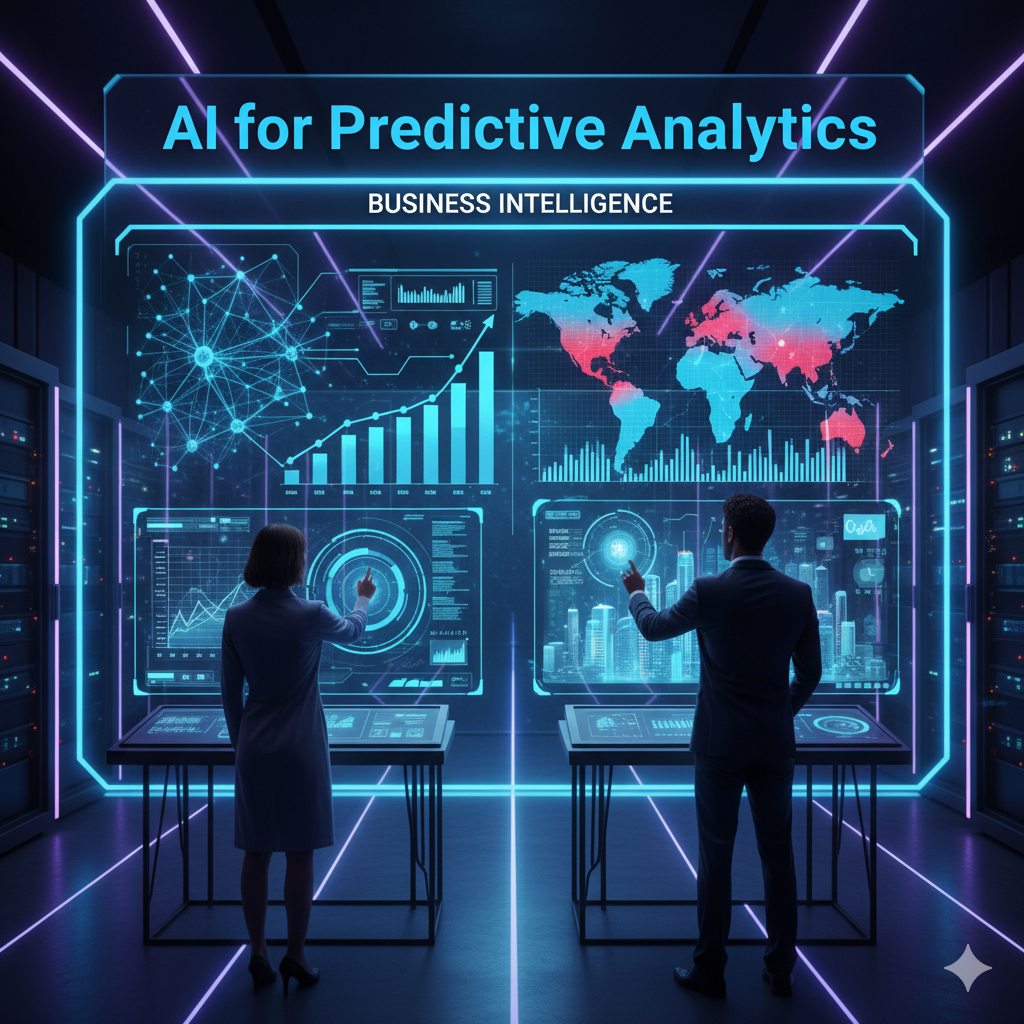🌍 What Is Predictive Analytics?
Predictive analytics involves the use of historical data to forecast future events. Here are some examples:
- Online retailers can anticipate which items customers will purchase in the coming month.
- Hospitals can identify patients who might require additional attention.
Artificial Intelligence (AI) enhances this process making it more efficient and quicker. It examines data trends, learns from them, and then produces precise forecasts without human intervention.
💡 How AI Has an Impact on Business Intelligence
Business Intelligence (BI) focuses on understanding company operations through data and reports. In the past, BI tools provided insights into past events — such as “sales declined last week.”
But when we combine AI with BI, it gets smarter. AI has the ability to:
- Forecast future trends such as which product will have higher sales.
- Uncover hidden patterns that people might overlook.
- Offer solutions to boost performance.
So instead of just reporting “sales dropped,” AI can explain why it happened and what steps to take next.
🔍 Real-World Examples of AI in Use
Many industries today use AI-powered predictive analytics:
- 🛒 Retail: Suggesting products customers might enjoy and anticipating demand.
- 💰 Finance: Spotting fraud and forecasting market risks.
- 🏥 Healthcare: Anticipating disease outbreaks and enhancing patient care.
- 🏭 Manufacturing: Anticipating machine failures before they occur.
- 📣 Marketing: Grasping customer behavior and enhancing campaigns.
⚙️ Key Benefits for Businesses
AI-powered predictive analytics provides companies several strong advantages:
✅ Accurate Forecasts – AI learns from massive datasets to predict outcomes more .
⚡ Faster Decisions – Instant analysis enables companies to take swift action.
💸 Cost Savings – Spotting issues early helps cut down on losses.
📈 Smarter Planning – Seeing trends coming aids in long-term growth.
🚀 The Future of AI in Predictive Analytics
The future goes beyond just seeing what’s coming — it’s about prescriptive analytics where AI not foresees events but also suggests steps to take.
For instance, AI might tell you:
“Sales might drop next week — increase your ad budget by 10% to balance it.”
Companies adopting AI now will gain an edge in competition, boost their productivity, and prepare for what’s ahead.
🧩 To wrap up
AI is changing how businesses handle data. Through forecasting and market insights, firms can make choices that are smarter, quicker, and based on facts. In a nutshell — AI goes beyond showing past events; it helps you anticipate what’s next and make smart plans.
